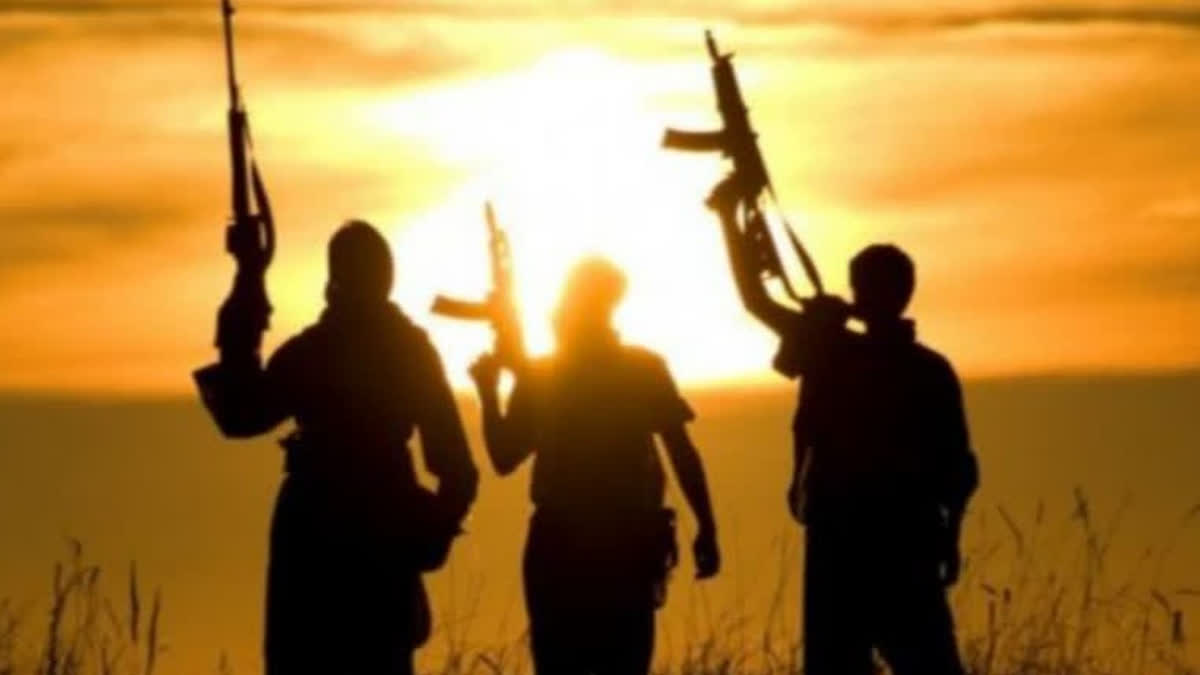New Delhi: Army, Central Armed Police Forces (CAPF), and Assam Police will organise recruitment rallies for eligible cadres of United Liberation Front of Assam (ULFA) as well as other youths of the state for their entry into the security agencies.
As per the peace accord signed between Government of India, Assam Government and ULFA in New Delhi on Friday, pre-recruitment training rallies will be organised by the agencies to facilitate the process of inducting former rebels into the mainstream. "This is not new. Earlier also two battalions of Naga rebels were inducted into the BSF and they performed very well,” former DGP of Manipur Pramod Asthana told ETV Bharat.
According to him, if rebels are "handled nicely", they can do very well in different security agencies. The accord was signed in the presence of Home Minister Amit Shah, Assam Chief Minister Himanta BIswa Sarma, 16 ULFA leaders, representatives of several Assam based communities and senior government officials.
The accord, according to the ULFA leaders, fulfils the hopes and aspirations of the people of the State. “Apart from ensuring political rights, the accord also ensures time bound developmental projects in Assam,” ULFA general secretary Anup Chetia told ETV Bharat. Following the signing of the peace accord, the outfit will be dismantled in the next 30 days and all the cadres will join the mainstream.
The accord also says that on compassionate grounds, the Assam government agrees to examine the issues and provide financial compensation of Rs 10 lakh to the next of kin and kin of each of the missing cadres, based on due verification by the police.
“The State government will also endeavor to provide a permanent source of livelihood to the wives (8) of missing cadres based on their eligibility,” the accord reads. Earlier, ULFA submitted a list of 31 of their cadres who went missing over the last two decades.
The accord stated that efforts will be made by the Government of India to relocate the office of Tea Board of India from Kolkata to a suitable location in Assam. “The Government of Assam will consider constituting a committee under the chairmanship of a cabinet minister to examine the issue of sick tea gardens and recommend steps as to how to revive them. The committee will also study various issues relating to welfare of the tea garden workers and recommend appropriate measures to address their grievances, in consultation with stakeholders, including the plantation owners,” the accord said while highlighting the issues of tea gardens in Assam.
It further said that persons belonging to the tea and ex-tea garden community will be given preference in allotment of land acquired from tea estate under the Assam Fixation of Ceiling on Land Holding Act, 1956, as amended from time to time.
Referring to the identity, culture and heritage of the indigenous people of Assam, the accord said that the Government of India may consider establishing a regional centre of Lalit Kala Academy for the Northeastern States in Assam. The Memorandum of Settlement said that the Government of Assam will set up an Archeological Research Centre at Tezpur besides setting up an ethnic museum in Dhemaji.
“A heritage centre will be set up by the government of Assam at Jamugurihat for preserving the “bhaona culture,” the accord highlighted. The accord said that a cultural academy and research centre will be set up by the government of Assam in erstwhile Lakhimpur, Darrang, Goalpatra, Kamrup, Sivasagar, Cachar and Nagaon districts which are known for their rich cultural tradition since pre-independence days.
The peace accord has also highlighted the Act East Policy. “An international cultural centre in Guwahati will be set up to promote socio-cultural contact with neighbouring countries,” the peace accord mentioned.
Read more



